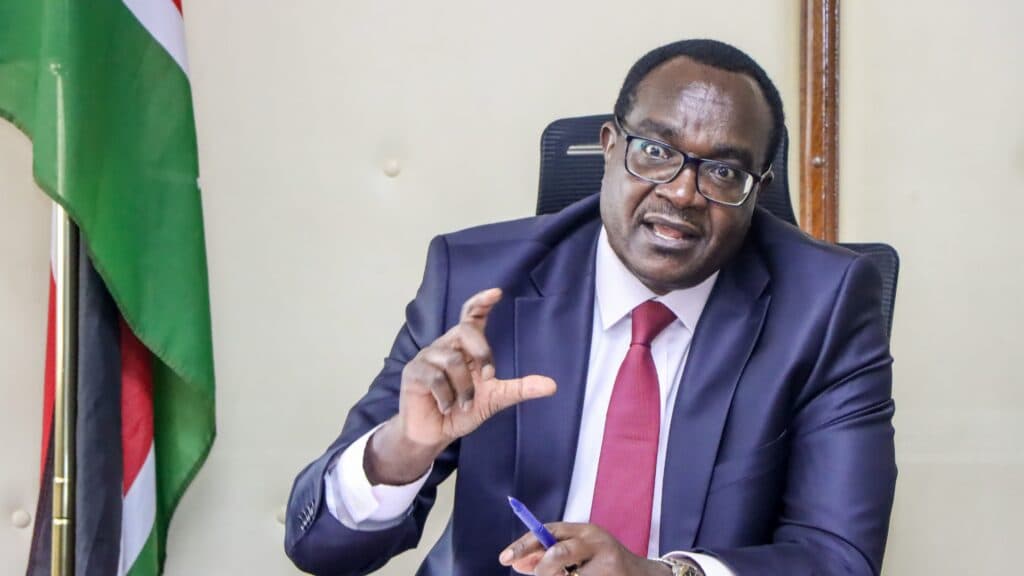We're loading the full news article for you. This includes the article content, images, author information, and related articles.
Officials reaffirm Kenya’s free schooling pledge, seek extra capitation funds, roll out new data system, and warn abusers will face severe penalties.

KILIFI, July 25, 2025 — Basic Education Principal Secretary Julius Bitok has emphatically reassured Kenyans that free primary and secondary education remains intact, while calling on Parliament to increase capitation and exam budgets to match record student numbers.
Speaking during the St. Thomas Girls’ Secondary School prize-giving event in Kilifi County, Bitok clarified that remarks by Treasury Cabinet Secretary John Mbadi, suggesting the policy could be unsustainable, were taken out of context. “I want to assure the country that the policy on free primary and secondary education has not changed,” he stated. “The government will continue financing education through capitation as it has been over the years.”
Bitok noted that although the Ministry of Education received a record KSh 702 billion in the 2025/26 budget, this amount still falls short of the sector’s growing requirements. He emphasised that rising enrolment and operational needs are stretching the current financing model, especially for examination fees and infrastructure. The PS confirmed the Ministry will lobby Parliament for more funds to address these deficits.
Mbadi had previously conceded before Parliament’s Education Committee that the government is unable to sustain the KSh 22,244 per-secondary-student capitation figure, revealing that the actual disbursement now stands at about KSh 16,900—a nearly KSh 5,300 shortfall. MPs raised alarm over this discrepancy, indicating schools may resort to sending students home unless Parliament steps in.
To improve accountability and eliminate ghost entries, Bitok unveiled plans for the rollout of the Kenya Education Management Information System (KEMIS). Set to replace the current NEMIS, KEMIS aims to accurately track every learner, teacher, and transfer—enhancing how capitation funds and other resources are distributed.
Parental assurance: With rising anxiety over hidden costs, Bitok’s assurances offer relief to families reliant on government support.
School operations: The capitation shortfall has pressured schools facing cash flow issues—some have had to suspend activities or conduct fundraising.
Policy integrity: Free education, introduced in 2003 (primary) and 2008 (secondary), remains a cornerstone of Kenya’s social contract and constitutional guarantee.
|
Issue |
Details |
|---|---|
|
Policy Status |
Free primary and secondary education remains guaranteed and supported by capitation funding |
|
Budget Allocation |
Ministry received KSh 702 billion, but demand continues to outpace supply |
|
Parliament Role |
The Ministry will engage MPs to increase capitation and examination budgets |
|
Data Reform |
Rollout of KEMIS to improve transparency and eliminate ghost funding |
|
Public Concern |
Capitation gap risks disruption in schools—parents worry about hidden fees |
PS Bitok’s message in Kilifi underscores an urgent fiscal challenge: to sustain free education, the government must secure additional funding through parliamentary action and modernise systems to ensure equitable distribution.
Keep the conversation in one place—threads here stay linked to the story and in the forums.
Sign in to start a discussion
Start a conversation about this story and keep it linked here.
Other hot threads
E-sports and Gaming Community in Kenya
Active 9 months ago
The Role of Technology in Modern Agriculture (AgriTech)
Active 9 months ago
Popular Recreational Activities Across Counties
Active 9 months ago
Investing in Youth Sports Development Programs
Active 9 months ago
Key figures and persons of interest featured in this article